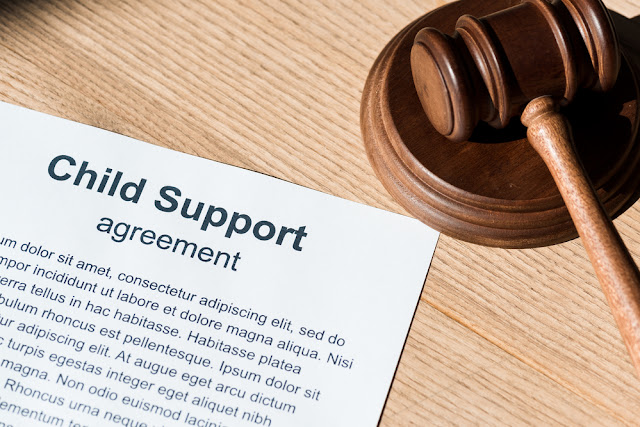When facing the difficult decision of divorce, choosing the
right method to proceed can significantly impact both the emotional and
financial health of all parties involved. This article discusses the nuances
between mediation and litigation, helping you decide the best course of action
for your circumstances.
Understanding
Your Options
1.
Mediation
Mediation is a collaborative approach in which both parties
work with a neutral, third-party mediator to negotiate and reach agreements.
The key benefits include:
●
Privacy: Mediation allows you and
your spouse to negotiate in a confidential setting, away from the public eye.
This privacy can ease the emotional strain of divorce proceedings and keep
personal details out of the public record, unlike traditional court cases.
●
Control: In mediation, you and your
spouse have the opportunity to reach mutually-agreeable decisions, maintaining
control over the outcomes, including asset division, child custody, and support
arrangements. This contrasts with litigation, in which a judge may make certain
decisions.
●
Cost: Mediation is typically less
expensive than litigation due to lower attorney fees and reduced court costs.
By resolving disputes through mediation, couples can avoid the financial
burdens associated with prolonged court battles and extensive legal research.
●
Speed: Mediation can be
significantly quicker than litigation, as it avoids the lengthy procedures of
court schedules. This process allows for more flexible scheduling, enabling
both parties to resolve their disputes in a timely manner and move forward with
their lives.
Consider mediation if you and your spouse believe you can resolve issues amicably. Mediation often leads to better post-divorce relationships, crucial for effective co-parenting. However, mediation is not appropriate in all divorce cases. Engaging the best divorce lawyers can help you determine if mediation is advisable in your case, and they can review agreements that result from mediation to ensure that such agreements are in your best legal interest.
2.
Litigation
Litigation provides parties with a third-party decisionmaker
(hearing officer or judge) for when they cannot come to an agreement by and
between themselves which is required in mediation. This is the traditional form
of divorce and more structured than mediation. The main aspects include:
●
Formality: The process is governed by
formal rules and procedures.
●
Decisiveness: A hearing officer or judge
will make decisions if the parties cannot mutually agree on an issue.
●
Representation: Each party typically hires
an attorney to advocate for his/her individual interests which mediators do not¾and cannot¾do.
Litigation might be unavoidable if there are significant
disagreements, especially involving complex assets or allegations of
misconduct. Litigation is also advisable
when there is a disparity of financial knowledge and/or bargaining power
between the spouses. If you suspect that your divorce may require rigorous
legal intervention, consider consulting a specialized divorce attorney, spousal support attorney and/or child custody attorney.
Key
Considerations
When deciding between mediation and litigation, consider the
following factors:
●
Complexity of Assets: High-asset divorces might
benefit from the detailed legal procedures of litigation.
●
Relationship Dynamics: High-conflict relationships
may require formal litigation to resolve effectively.
●
Desired Speed of Resolution: Mediation could be faster
if both parties are cooperative.
● Financial Resources: Mediation is generally more cost-effective, thanks
to affordable divorce attorneys, child support attorneys and/or custody attorneys who can assist in streamlining
the process.
Who
Should Choose What?
●
Mediation is best for couples who have equal
knowledge of their finances and equal bargaining power, who are still capable
of communicating with each other, and who wish to end their marriage amicably.
● Litigation is advisable for cases in which communication has broken down irretrievably, in which the parties do not have equal knowledge and/or bargaining power, or where significant disputes over custody or finances exist.
Steps to Take
- Assess Your Situation: Consider your financial
position, the complexity of your custody desires, and your relationship
dynamics.
- Consult Professionals: Speak with attorneys who can
provide guidance based on your specific circumstances.
- Choose the Appropriate Path: Decide which process
works best for your needs and goals after discussing the pros and cons of
each path with a knowledgeable domestic attorney.
Moving Forward
with Confidence
Choosing between mediation and litigation involves
understanding the distinct advantages each option offers and aligning them with
your personal situation. By considering your relationship dynamics, financial
complexities, and desired outcomes, you can make an informed decision that minimizes
stress for all parties involved.
For personalized guidance and to discuss your options
further, Contact Us for a complimentary consultation.
Let us help you move forward with confidence and ensure that your interests are
fully protected.
This blog was originally posted on https://pa4law.com/mediation-vs-litigation-choosing-the-right-path-for-your-divorce/






























